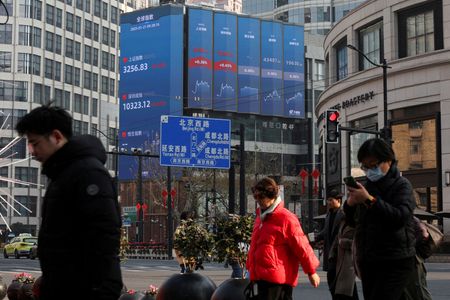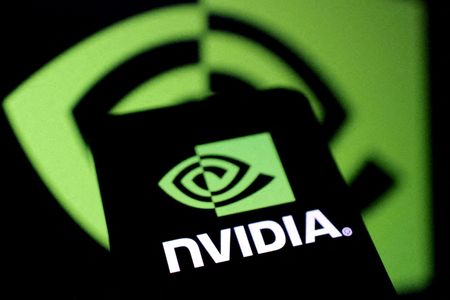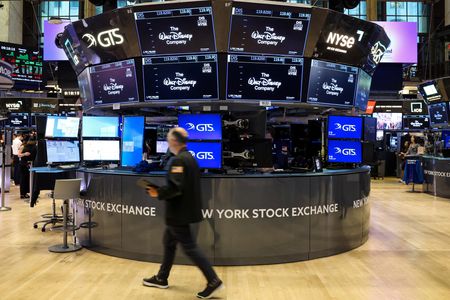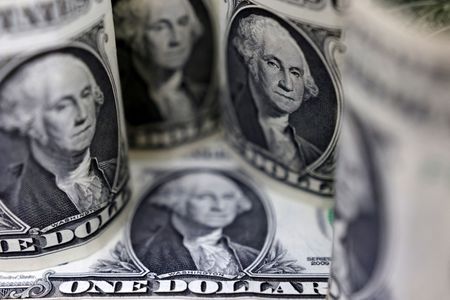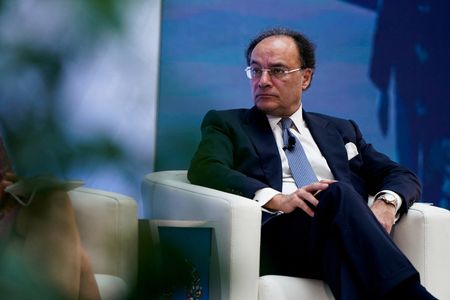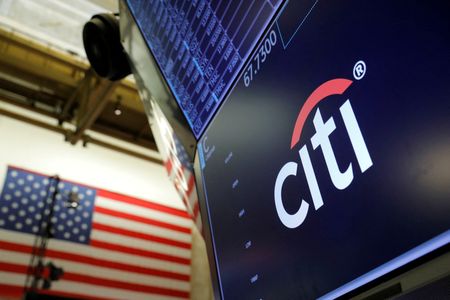By Nell Mackenzie, Summer Zhen and Carolina Mandl
LONDON (Reuters) – Global hedge funds keen to navigate U.S.-China trade tensions are amassing Chinese stock bets in the hopes of making huge profits if Beijing forms a pact with Donald Trump, or if the rest of the world and China unite against the U.S. president.
As lower-risk bets, they shouldn’t be too hard hit either way, several fund managers and investment professionals say.
Hedge funds currently own the most Chinese stock they have in 12 months but relative to history, levels remain low, Morgan Stanley wrote in a prime brokerage note on Monday.
The U.S. hedge fund community, representing the largest chunk of the industry, currently allocates around 3% of its portfolios to China, said Morgan Stanley.
By comparison, global hedge funds directed around 60% of their trading flows to the United States in the week to February 14, a separate Goldman note showed.
A relatively robust economy coupled with expectations for deregulation and tax cuts under Trump continues to bolster U.S. markets.
China meanwhile is still battling a real estate crisis and high debt, meaning hedge funds remain cautious about allocating cash to the world’s No.2 economy.
But funds that stayed away from China lost out on a sharp rally in stocks from September. Driven by economic stimulus hopes, Chinese stocks closed 2024 with their first annual gain since 2020.
That’s why some U.S. hedge funds have crept back into Chinese stocks, finding cheap and lower-risk ways to do this.
David Aspell, a portfolio manager at the $1.7 billion macro hedge fund Mount Lucas, said he bought call options, giving him the right to a stock but only if it touches a certain price. These came cheaply as the price they must hit is valued far above the current trading price, he said.
He also has exposure to China index funds and single stocks and reckons tariff headwinds will ease, arguing Trump wants a trade deal with China that serves U.S. interests.
CHINA’S CHOICE
Having promised 60% tariffs on Chinese imports before he was elected, Trump has revised that to 10% since taking office.
“China now has a choice. If it’s not going to be in the club, the U.S. may cut it off,” said Aspell.
“At that point China will have to find other markets to absorb its massive export capacity, which may or may not exist.”
Aspell added that he was optimistic a trade deal might happen although the path ahead might be bumpy.
Boaz Weinstein, founder of the $5 billion Saba Capital Management, noted how some Chinese stocks trade below the levels of company cash intake after costs, making them undervalued.
“Certain Chinese tech stocks are profitable and deeply undervalued companies that have attractive, market-leading businesses,” Weinstein told Reuters.
Jon Withaar, who manages an Asia special situations hedge fund at Pictet Asset Management, added some China stocks but recently became concerned about the composition of China’s most recent tech-driven rally and the speed at which it happened, and bought some put options – hedges in case stock values decline – on the index level.
Global markets were rocked last month as DeepSeek, a low-cost Chinese artificial intelligence model, took the top download spot on the Apple store.
“My biggest concerns are further headlines around the China/U.S. relationship, and extreme bullish positioning from fast money and retail accounts,” Withaar said.
But even before DeepSeek’s debut, Chinese AI development had been a key interest for local funds.
“AI is a mega trend. It will exist no matter how the U.S.-China trade war develops,” said Fang Zheng, chief investment officer at Hong Kong-based Keywise Capital.
In a recent letter to investors, the $112.5 billion Bridgewater Associates’ co-chief investment officer Karen Karniol-Tambour said that investors are likely to benefit from geographic diversification, with some preference to China.
“The world ahead is likely to reward diversification, as increasing global fragmentation in response to rising mercantilist policies will reduce correlations and increase the likelihood that there will be clear winners and losers,” she wrote.
BNP Paribas’ recent 2025 Hedge Fund Outlook anticipated that investors would reverse their exodus from China assets, noting that 7% of investors they surveyed were looking to add China exposure.
“This is in direct contrast to 2024 and 2023, when 17% and 42% of investors pulled capital, respectively,” the report said.
(Reporting by Nell Mackenzie in London, Summer Zhen in Hong Kong and Carolina Mandl in New York; Editing by Dhara Ranasinghe and Hugh Lawson)

